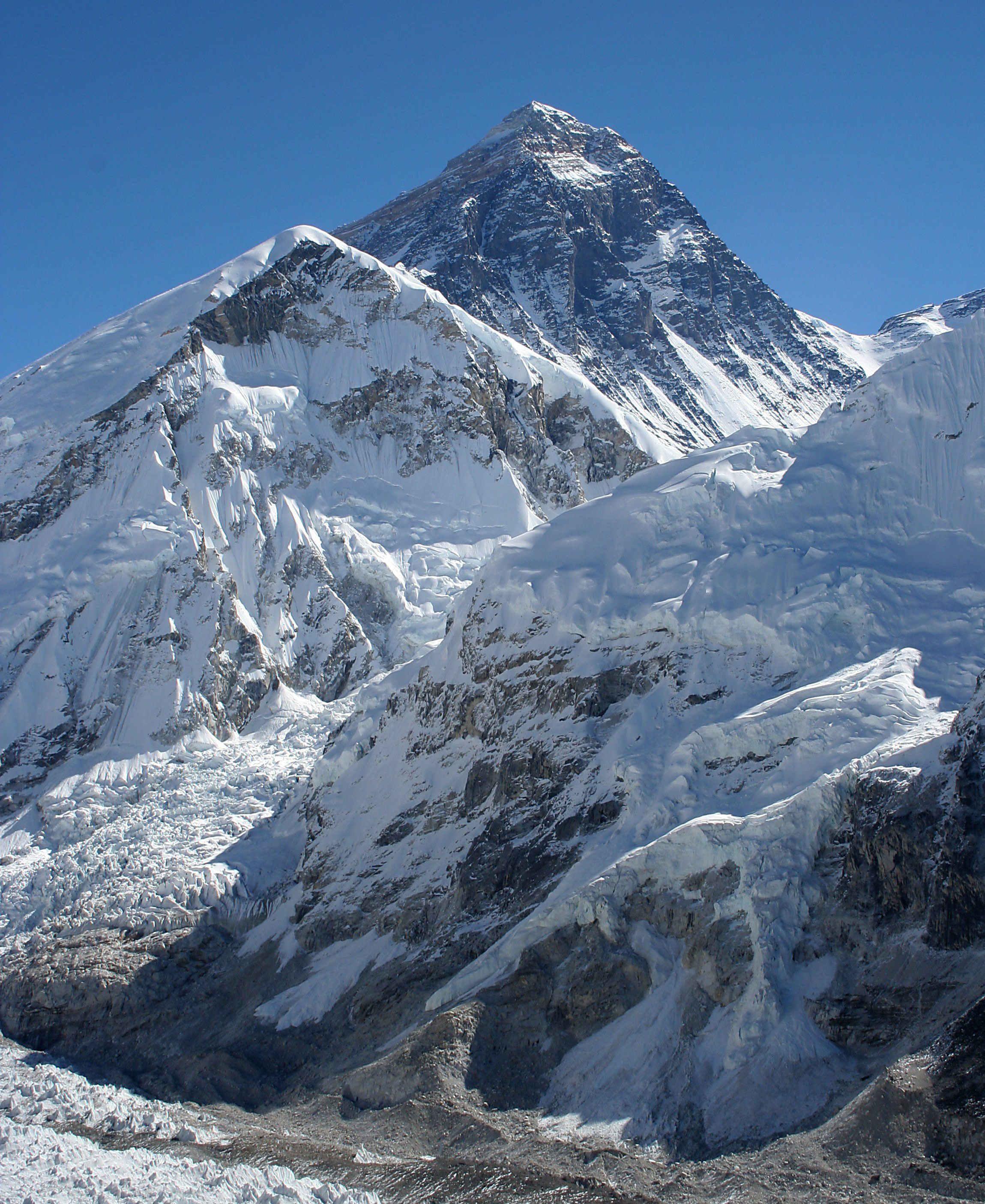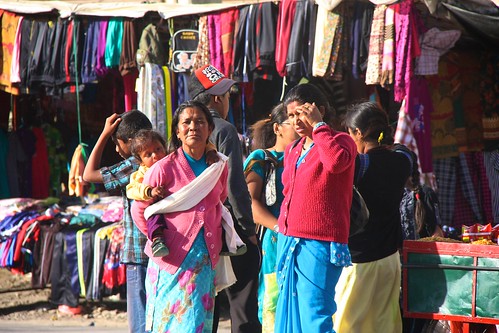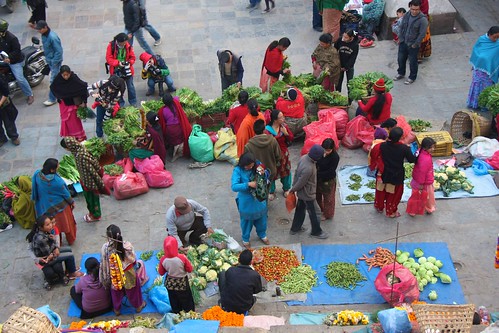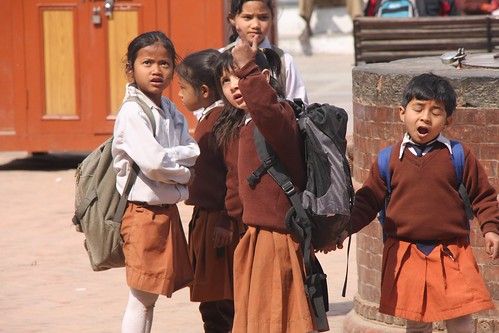Difference between revisions of "Adopting from Nepal"
(→Hague Convention Information) |
(→Hague Convention Information) |
||
| (16 intermediate revisions by 2 users not shown) | |||
| Line 1: | Line 1: | ||
| − | {{#eimage:https://www.cia.gov/library/publications/the-world-factbook/graphics/flags/large/np-lgflag.gif|410x579px|thumb|'''The official flag | + | {{#eimage:https://www.cia.gov/library/publications/the-world-factbook/graphics/flags/large/np-lgflag.gif|410x579px|thumb|'''The official flag.'''<BR/>Source: cia.gov.}} |
| − | {{#eimage:https://www.cia.gov/library/publications/the-world-factbook/graphics/maps/np-map.gif|410x579px|thumb|'''Map | + | {{#eimage:https://www.cia.gov/library/publications/the-world-factbook/graphics/maps/np-map.gif|410x579px|thumb|'''Map.'''<BR/>Source: cia.gov.}} |
| − | {{#eimage:https://www.cia.gov/library/publications/the-world-factbook/graphics/locator/sas/np_large_locator.gif|410x579px|thumb|'''Map | + | {{#eimage:https://www.cia.gov/library/publications/the-world-factbook/graphics/locator/sas/np_large_locator.gif|410x579px|thumb|'''Map.'''<BR/>Source: cia.gov.}} |
| − | {{#eimage:http://upload.wikimedia.org/wikipedia/commons/4/4b/Everest_kalapatthar_crop.jpg|410x579px|thumb|'''Mt. Everest | + | {{#eimage:http://upload.wikimedia.org/wikipedia/commons/4/4b/Everest_kalapatthar_crop.jpg|410x579px|thumb|'''Mt. Everest.'''<BR/>Source: Wikipedia.org.}} |
| − | {{#eimage:http://upload.wikimedia.org/wikipedia/commons/1/19/Terai_nepal.jpg|410x579px|thumb|'''A field in Terai | + | {{#eimage:http://upload.wikimedia.org/wikipedia/commons/1/19/Terai_nepal.jpg|410x579px|thumb|'''A field in Terai.'''<BR/>Source: Wikipedia.org.}} |
{{#eimage:http://upload.wikimedia.org/wikipedia/commons/thumb/2/2d/Kathmandu_street.jpg/800px-Kathmandu_street.jpg|410x579px|thumb|'''Kathmandu street vendors.'''<BR/>Source: Wikipedia.org.}} | {{#eimage:http://upload.wikimedia.org/wikipedia/commons/thumb/2/2d/Kathmandu_street.jpg/800px-Kathmandu_street.jpg|410x579px|thumb|'''Kathmandu street vendors.'''<BR/>Source: Wikipedia.org.}} | ||
| − | {{#eimage:https://farm8.staticflickr.com/7188/6858786640_74d06fcccc.jpg|410x579px|thumb|'''Pokhara | + | {{#eimage:https://farm8.staticflickr.com/7188/6858786640_74d06fcccc.jpg|410x579px|thumb|'''Pokhara.'''<BR/>Source: flickr.com.}} |
{{#eimage:http://upload.wikimedia.org/wikipedia/commons/thumb/1/11/Yak_Nepal.jpg/800px-Yak_Nepal.jpg|410x579px|thumb|'''Means of transport in mountain area.'''<BR/>Source: Wikipedia.org.}} | {{#eimage:http://upload.wikimedia.org/wikipedia/commons/thumb/1/11/Yak_Nepal.jpg/800px-Yak_Nepal.jpg|410x579px|thumb|'''Means of transport in mountain area.'''<BR/>Source: Wikipedia.org.}} | ||
| − | {{#eimage:http://upload.wikimedia.org/wikipedia/commons/thumb/3/39/Stupa_in_bodnath.jpg/800px-Stupa_in_bodnath.jpg|410x579px|thumb|'''Stupa in Bodnath | + | {{#eimage:http://upload.wikimedia.org/wikipedia/commons/thumb/3/39/Stupa_in_bodnath.jpg/800px-Stupa_in_bodnath.jpg|410x579px|thumb|'''Stupa in Bodnath.'''<BR/>Source: Wikipedia.org.}} |
| − | {{#eimage: | + | {{#eimage:http://upload.wikimedia.org/wikipedia/commons/thumb/0/02/P37275-Kathmandu-Boudhanath.jpg/800px-P37275-Kathmandu-Boudhanath.jpg|410x579px|thumb|'''Kathmandu - Boudhanath.'''<BR/>Source: Wikipedia.org.}} |
| + | {{#eimage:https://farm7.staticflickr.com/6056/7004817149_148e4f9420.jpg|410x579px|thumb|'''A busy market in Kathmandu.'''<BR/>Source: flickr.com.}} | ||
| + | {{#eimage:http://upload.wikimedia.org/wikipedia/commons/thumb/2/2e/Kathmandu_valley2.jpg/800px-Kathmandu_valley2.jpg|410x579px|thumb|'''View of Himalayas from Kathmandu valley.'''<BR/>Source: Wikipedia.org.}} | ||
| − | {{#eimage: | + | {{#eimage:https://farm7.staticflickr.com/6114/7004557265_e2276fd26a.jpg|410x579px|thumb|''''''<BR/>Source: flickr.com.}} |
| − | + | '''Notice: As of July 14, 2014, all individuals and agencies facilitating [[international]] adoptions must be in compliance with the Intercountry [[Universal Accreditation Act]].''' | |
| − | + | The information contained on this website is for educational purposes only and is not intended to be a substitute for professional legal advice. Always seek the advice of a licensed and qualified professional. While the content of this website is frequently updated, information changes rapidly and therefore, some information may be out of date, and/or contain inaccuracies, omissions or typographical errors. | |
| − | |||
| + | =About Nepal= | ||
| − | + | In 1951, the Nepali monarch ended the century-old [[system]] of rule by hereditary premiers and instituted a cabinet [[system]] of government. Reforms in 1990 established a multiparty democracy within the framework of a constitutional monarchy. An insurgency led by Maoists broke out in 1996. To learn more read [[About Nepal]]. | |
| − | + | =Nepal Adoption Alert= | |
| + | There have been multiple [[adoption]] alerts for [[Nepal]] over the years. To learn more about this please read the [[Nepal Adoption Alert]] page. | ||
| − | |||
| + | =Hague Convention Information= | ||
| − | + | [[Nepal]] is not party to the Hague Convention on Protection of Children and Co-operation in Respect of Intercountry [[Adoption]]([http://adoption.state.gov/hague_convention/overview.php Hague Adoption Convention]). Intercountry adoptions of children from non-Hague countries are processed in accordance with [http://www.ecfr.gov/cgi-bin/text-idx?c=ecfr&rgn=div5&view=text&node=8:1.0.1.2.8&idno=8#8:1.0.1.2.8.1.1.3 8 Code of Federal Regulations, Section 204.3] as it relates to orphans as defined under the [https://www.uscis.gov/laws-and-policy/legislation/immigration-and-nationality-act Immigration and Nationality Act, Section 101(b)(1)(F)]. To learn more please read about [[Nepal and the Hague Convention]]. | |
| + | =Who Can Adopt= | ||
| + | In addition to U.S. immigration requirements, you must also meet additional requirements in order to [[adopt]] a child from [[Nepal]]. To learn more please read about [[Who Can Adopt from Nepal]]. | ||
| − | |||
| − | + | =Who Can Be Adopted= | |
| + | In addition to U.S. immigration requirements, [[Nepal]] has specific requirements that a child must meet in order to be eligible for [[adoption]]. To learn more please read [[Who Can Be Adopted from Nepal]]. | ||
| − | |||
| + | =How to Adopt= | ||
| − | + | ==Adoption Authority== | |
| + | '''[[Nepal]]’s [[Adoption]] Authority''' | ||
| − | + | Ministry of Women, Children and Social Welfare | |
| − | The | + | ==The Process== |
| + | The process for adopting a child from [[Nepal]] generally includes the following steps: | ||
| − | |||
| − | + | # Choose an [[Adoption Service Provider]] | |
| + | # Apply to be Found Eligible to [[Adopt]] | ||
| + | # Be Matched with a Child | ||
| + | # [[Adopt]] the Child in [[Nepal]] | ||
| + | # Apply for the child to be found eligible for orphan status | ||
| + | # Bring Your Child Home | ||
| − | + | To learn more about this process please read about [[How to Adopt from Nepal]]. | |
| − | + | =Traveling Abroad= | |
| + | '''Applying for Your U.S. Passport''' | ||
| − | + | A valid U.S. passport is required to enter and leave [[Nepal]]. Only the U.S. Department of State has the authority to grant, issue, or verify U.S. passports. Getting or renewing a passport is easy. To learn more please read about [[Traveling Abroad in Nepal]]. | |
| − | + | =After Adoption= | |
| + | '''What resources are available to assist families after the [[adoption]]?''' | ||
| − | ' | + | Many [[Adoptive Parents|adoptive parents]] find it important to find support after the [[adoption]]. Take advantage of all the resources available to your family -- whether it's another adoptive family, a support group, an advocacy organization, or your religious or community services. |
| − | + | Here are some good places to start your support group search: | |
| − | + | [https://www.childwelfare.gov/pubs/f_postadoption.cfm Child Welfare Information Gateway] | |
| − | + | [http://www.nacac.org/ North American Council on Adoptable Children] | |
| − | + | '''NOTE:''' Inclusion of non-U.S. Government links does not imply endorsement of contents. | |
| − | |||
| − | = | + | =Contact Information= |
| − | + | '''U.S. Embassy in [[Nepal]]''' | |
| − | + | Maharajgunj | |
| + | Kathmandu, [[Nepal]] | ||
| + | Tel.: +977-1-400-7200 | ||
| + | Fax: +977-1-400-7281 | ||
| + | E-mail: adoptionsnepal@state.gov | ||
| + | Internet: [http://nepal.usembassy.gov U.S. Embassy Nepal] | ||
| − | + | '''[[Nepal]]'s [[Adoption]] Authority''' | |
| + | Ministry of Women, Children and Social Welfare | ||
| + | Singha Durbar | ||
| + | Kathmandu, [[Nepal]] | ||
| + | Tel: +977-1-420-0408 | ||
| + | Fax: +977-1-420-0116 | ||
| + | Email: mail@mowcsw.gov.np | ||
| + | Internet: [ MOWCSW] (Please note that as of this posting, the Ministry of Women, Children and Social Welfare’s website is under construction.) | ||
| − | |||
| + | '''Embassy of [[Nepal]]''' | ||
| − | + | 2131 Leroy Place, N.W. | |
| + | [[Washington]], D.C. 20008 | ||
| + | Tel: 202-667-4550 | ||
| + | Internet: [http://nepalembassyusa.org Embassy of Nepal] | ||
| − | |||
| − | + | '''Office of Children's Issues''' | |
| − | + | U.S. Department of State | |
| + | CA/OCS/CI | ||
| + | SA-17, 9th Floor | ||
| + | [[Washington]], DC 20522-1709 | ||
| + | Tel: 1-888-407-4747 | ||
| + | E-mail: AskCI@state.gov | ||
| + | Internet: [http://adoption.state.gov U.S. Department of State] | ||
| − | |||
| + | '''U.S. Citizenship and Immigration Services (USCIS)''' | ||
| − | + | For questions about immigration procedures: | |
| + | National Customer Service Center (NCSC) | ||
| + | Tel: 1-800-375-5283 (TTY 1-800-767-1833) | ||
| + | Internet: [http://uscis.gov USCIS] | ||
| − | |||
| − | |||
| − | |||
| − | |||
| − | |||
| − | |||
| − | |||
| − | |||
| − | |||
| − | |||
| − | |||
| − | |||
| − | |||
| + | For questions about filing a Form [[I-600A]] or [[I-600]] petition: | ||
| + | National Benefits Center | ||
| + | Tel: 1-877-424-8374 (toll free); 1-816-251-2770 (local) | ||
| + | Email: NBC.Adoptions@DHS.gov | ||
==SOURCE== | ==SOURCE== | ||
| − | '''Intercountry [[Adoption]], Bureau of Consular Affairs. U.S. Department of State Country Information''' | + | '''Intercountry [[Adoption]], Bureau of Consular Affairs. U.S. Department of State Country Information''' [[adoption]].state.gov/country_information/country_specific_info.php?country-select=[[nepal]] |
[[Category: International Adoption]] | [[Category: International Adoption]] | ||
Latest revision as of 15:35, 8 July 2021
Notice: As of July 14, 2014, all individuals and agencies facilitating international adoptions must be in compliance with the Intercountry Universal Accreditation Act.
The information contained on this website is for educational purposes only and is not intended to be a substitute for professional legal advice. Always seek the advice of a licensed and qualified professional. While the content of this website is frequently updated, information changes rapidly and therefore, some information may be out of date, and/or contain inaccuracies, omissions or typographical errors.
Contents
About Nepal
In 1951, the Nepali monarch ended the century-old system of rule by hereditary premiers and instituted a cabinet system of government. Reforms in 1990 established a multiparty democracy within the framework of a constitutional monarchy. An insurgency led by Maoists broke out in 1996. To learn more read About Nepal.
Nepal Adoption Alert
There have been multiple adoption alerts for Nepal over the years. To learn more about this please read the Nepal Adoption Alert page.
Hague Convention Information
Nepal is not party to the Hague Convention on Protection of Children and Co-operation in Respect of Intercountry Adoption(Hague Adoption Convention). Intercountry adoptions of children from non-Hague countries are processed in accordance with 8 Code of Federal Regulations, Section 204.3 as it relates to orphans as defined under the Immigration and Nationality Act, Section 101(b)(1)(F). To learn more please read about Nepal and the Hague Convention.
Who Can Adopt
In addition to U.S. immigration requirements, you must also meet additional requirements in order to adopt a child from Nepal. To learn more please read about Who Can Adopt from Nepal.
Who Can Be Adopted
In addition to U.S. immigration requirements, Nepal has specific requirements that a child must meet in order to be eligible for adoption. To learn more please read Who Can Be Adopted from Nepal.
How to Adopt
Adoption Authority
Ministry of Women, Children and Social Welfare
The Process
The process for adopting a child from Nepal generally includes the following steps:
- Choose an Adoption Service Provider
- Apply to be Found Eligible to Adopt
- Be Matched with a Child
- Adopt the Child in Nepal
- Apply for the child to be found eligible for orphan status
- Bring Your Child Home
To learn more about this process please read about How to Adopt from Nepal.
Traveling Abroad
Applying for Your U.S. Passport
A valid U.S. passport is required to enter and leave Nepal. Only the U.S. Department of State has the authority to grant, issue, or verify U.S. passports. Getting or renewing a passport is easy. To learn more please read about Traveling Abroad in Nepal.
After Adoption
What resources are available to assist families after the adoption?
Many adoptive parents find it important to find support after the adoption. Take advantage of all the resources available to your family -- whether it's another adoptive family, a support group, an advocacy organization, or your religious or community services.
Here are some good places to start your support group search:
Child Welfare Information Gateway
North American Council on Adoptable Children
NOTE: Inclusion of non-U.S. Government links does not imply endorsement of contents.
Contact Information
U.S. Embassy in Nepal
Maharajgunj Kathmandu, Nepal Tel.: +977-1-400-7200 Fax: +977-1-400-7281 E-mail: adoptionsnepal@state.gov Internet: U.S. Embassy Nepal
Ministry of Women, Children and Social Welfare Singha Durbar Kathmandu, Nepal Tel: +977-1-420-0408 Fax: +977-1-420-0116 Email: mail@mowcsw.gov.np Internet: [ MOWCSW] (Please note that as of this posting, the Ministry of Women, Children and Social Welfare’s website is under construction.)
Embassy of Nepal
2131 Leroy Place, N.W. Washington, D.C. 20008 Tel: 202-667-4550 Internet: Embassy of Nepal
Office of Children's Issues
U.S. Department of State CA/OCS/CI SA-17, 9th Floor Washington, DC 20522-1709 Tel: 1-888-407-4747 E-mail: AskCI@state.gov Internet: U.S. Department of State
U.S. Citizenship and Immigration Services (USCIS)
For questions about immigration procedures: National Customer Service Center (NCSC) Tel: 1-800-375-5283 (TTY 1-800-767-1833) Internet: USCIS
For questions about filing a Form I-600A or I-600 petition:
National Benefits Center
Tel: 1-877-424-8374 (toll free); 1-816-251-2770 (local)
Email: NBC.Adoptions@DHS.gov
SOURCE
Intercountry Adoption, Bureau of Consular Affairs. U.S. Department of State Country Information adoption.state.gov/country_information/country_specific_info.php?country-select=nepal












